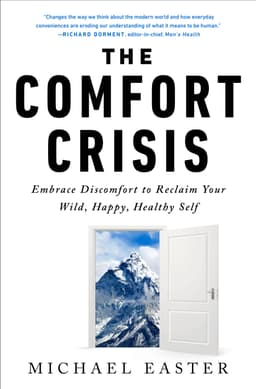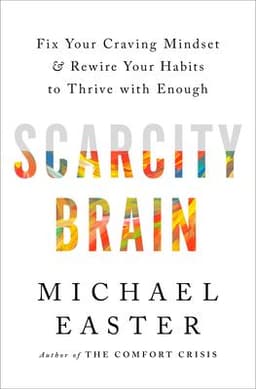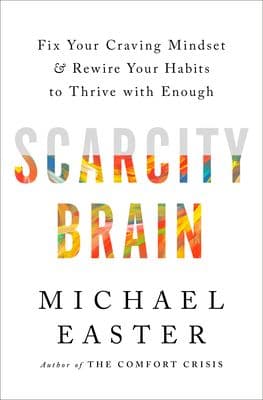
The Comfort Crisis Book Summary
Embrace Discomfort To Reclaim Your Wild, Happy, Healthy Self
Book by Michael Easter
Want to read the full summary?Click here to read for free!
Summary
In "The Comfort Crisis," Michael Easter investigates how our modern culture of constant comfort may be making us less resilient, more prone to illness, and robbing us of the very experiences that make us feel most alive.
Sign in to rate
Average Rating: 3.33
These are the best quotes from The Comfort Crisis by Michael Easter. If you want to read a full summary of this book for free, click here.
The Problem With Comfort
"Most people today rarely step outside their comfort zones. We are living progressively sheltered, sterile, temperature-controlled, overfed, underchallenged, safety-netted lives."
Section: 1, Chapter: 1
Comfort No Longer Moves Happiness
"Comforts and conveniences are great. But they haven't always moved the ball downfield in our most important metric: happy, healthful years."
Section: 1, Chapter: 3
The Dopamine Trap and Food
"In evolutionary terms, this property of palatable foods used to be advantageous in environments where food sources were scarce and/or unreliable because it ensured that food was eaten when available, enabling energy to be stored in the body (as fat) for future use. However, in societies like ours, where food is plentiful and ubiquitous, this adaptation has become a dangerous liability."
Section: 1, Chapter: 14
The Mental Cost of Inactivity
"When faced with chronic inactivity over the lifespan, as is common in modern industrialized societies...[our] lack of either exercise in general or cognitive demands during exercise may lead to capacity reductions or suboptimal capacity maintenance in the brain similar to those seen in other organ systems....Our brains adaptively reduce capacity as part of an energy-saving strategy, leading to age-related brain atrophy."
Section: 1, Chapter: 20
Related Content


Scarcity Brain Book Summary
Michael Easter
In a world of abundance, our ancient scarcity-wired brains keep us trapped in self-defeating loops of "more" - but by recognizing these patterns and deliberately choosing "enough," we can find deeper fulfillment.
In a world of abundance, our ancient scarcity-wired brains keep us trapped in self-defeating loops of "more" - but by recognizing these patterns and deliberately choosing "enough," we can find deeper fulfillment.
Personal Development
Psychology
Habits
Human Behavior

